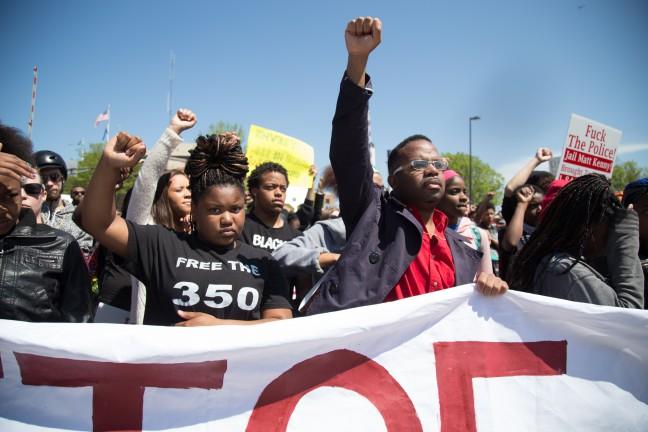Ever since the Chicago Bears started sucking again — which was week one of the NFL regular season — I’ve spent my Saturdays glued to my TV watching College Gameday and NCAA football games from across the nation to appease my reeling football heart.
Saturday, while I watched the Minnesota-Northwestern game, the channel cut to a game break. Traditionally, these game breaks show highlights and score updates from games around the league. This time, though, it cut to a field full of protesters at the Harvard-Yale game, delaying the start of the third quarter by almost an hour.
To be frank, it didn’t matter what these fans-turned-demonstrators were protesting about — signs ranged from climate injustice to divestment from Puerto Rican debts to the treatment of Uighurs in China — they disrupted the “order” of the game’s almost 150-year-old tradition, particularly with “OK boomer” chants.
In a statement, the Ivy League condemned the protest’s timing as “regrettable” due to the tradition the protest disrupted, and both Yale and Harvard officials disagreed with the protesters’ actions because they disrupted a university event.
Basically, their calls to action, whatever they may be, were wrong if only because they disrupted “tradition.”
Herein lies the fault behind these elite institutions’ reasoning. Protests inherently disrupt tradition and break the status quo, as typically, protests are used as mechanisms to incite change.
But for institutions to deem these protests as respectable, they must be “orderly,” inherently a definition subject to bias. “Orderly” protests are seen as the right thing to do, an almost noble pursuit for a cause that will keep the status quo the norm. Instead of facing backlash from their institutions in these moments, students are applauded and given a pat on the back.
At the University of Wisconsin, one of the first large-scale protests was deemed to be of the “orderly” variety. In 1962, upwards of 1,000 members of Greek letter organizations, then exclusively-white institutions, marched to Bascom Hall to stand in support for a chapter which was under threat of elimination due to their supposed national non-discrimination clause clearly not existing. Then-Dean of Students Leroy E. Luberg described this moment as “very orderly,” and unsurprisingly, the status quo was kept and the demand to keep the chapter was met.
For some, participation in these “orderly” protests without fear for arrest or mistreatment is the only safe ground to have their voice be heard. The right to participate in these “disruptive” protests then rests with whether or not the student can otherwise be constructed as “orderly” with an arrest on their record.
For students who are U.S. citizens at elite universities with a pristine record and resume, an arrest in an event like this might be another bullet point on their resume. For those without such constructions, such as the international students protesting who were specifically told when to leave the field so they would not face arrest, this privilege to protest is not so easily granted and can tarnish years of hard work with a new-found record.
These concerns take heightened precedence with the arrival of increased limitations on what sorts of protests are considered “orderly” on campuses, with the UW System’s new guidelines leaving expulsion as a possible outcome for those deemed to fall outside of an “orderly” definition.
Order does not equal justice, and the most highly-respected educational institutions in our country should know that by now.
Angela Peterson (apeterson@badgerherald.com) is a senior studying music and history.


